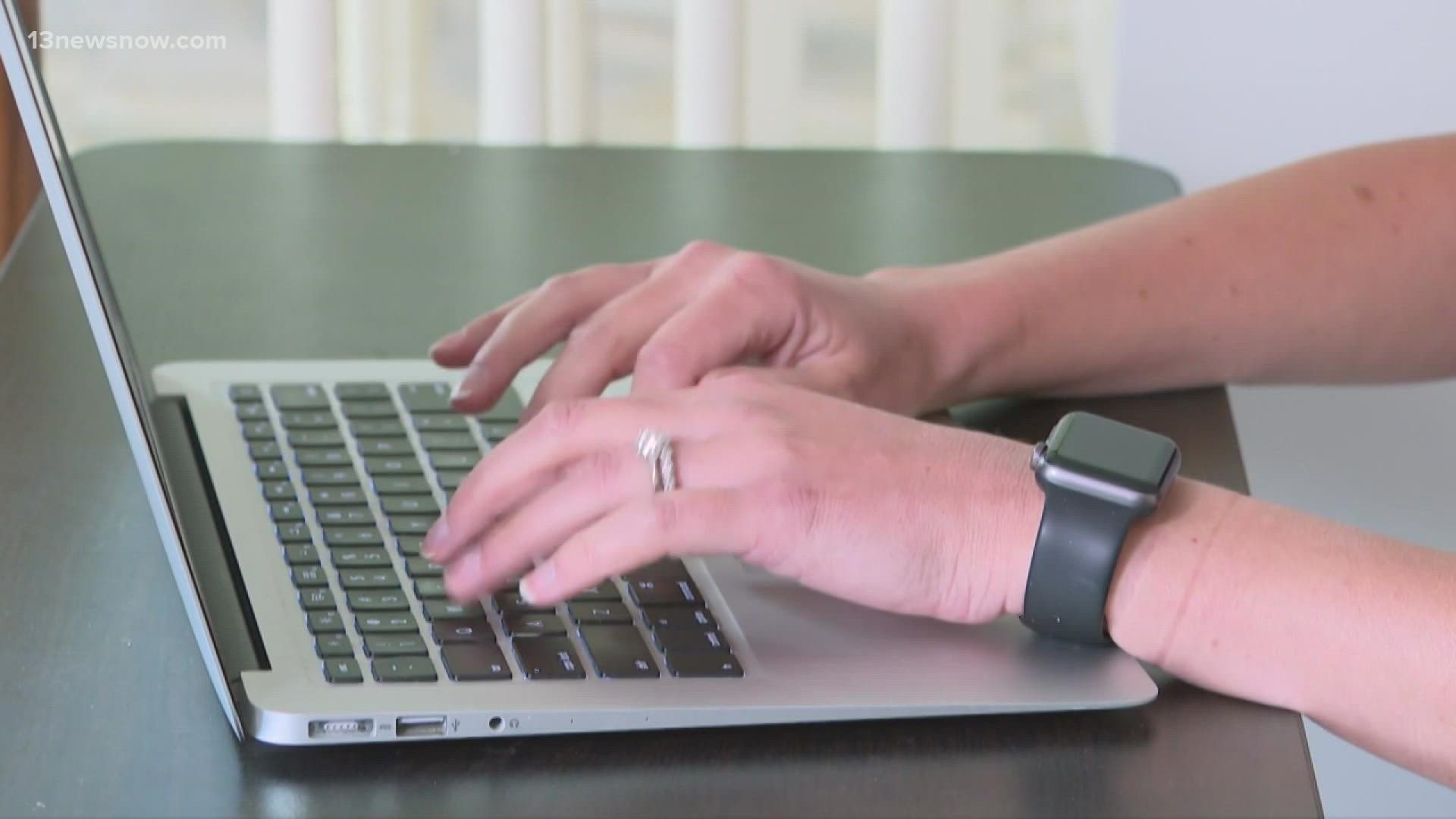NEWPORT NEWS, Va. — As Russia's invasion of Ukraine creates growing concerns globally, the U.S. is bracing for a different attack on the cybersecurity front.
The Associated Press is reporting Russia recently set a cyber attack on Ukrainian banks and government departments.
"Russia literally has not tens or hundreds, but thousands of cyber tools they could launch," said Senator Mark Warner (D-Va.) during a visit to the NASA Langley Research Center on Thursday. "If we get into a cyber escalation that could start after the sanctions go in place, we go into uncharted territory."
It's a threat the founder of Strategic Cyber Partners in Newport News, Heather Engel, said people should take seriously.
"Particularly in Hampton Roads, because we have a lot of companies that do work for the Department of Defense, we are a critical target for things like this," said Engel. "What we're seeing right now is what we call an elevated cyber threat level, so there's always a risk for cyberattacks."
If a cyberattack were to happen on a larger scale, Engel said the average citizen could lose access to important online information, including things like bank accounts and other logins. She said cybersecurity attacks could impact things on a much broader scale such as the supply chain, gas prices, power grids, and so much more.
Engel said now is a good time to bring up those defense shields with a few simple tactics.
"Just being cautious about the emails you're opening. Making sure you have backups of your critical information," said Engel. "It never hurts to have cash on hand. If we were to see something like that, even a temporary outage can prevent you using a credit card or going to the bank to get cash out to pay for things."
Engel said it's best to avoid clicking on any suspicious-looking emails or links.
If you see an email or text from an unknown source and it has poor grammar, messy formatting, or doesn't address you personally, it's something you should consider dangerous to you and your computer. In addition, if the writing has a sense of urgency and asks you to provide money, personal information, or to click on a link, it's most likely an attempted cyberattack.
One of the best ways to you can avoid clicking on a suspicious link is by hovering your mouse (don't click!) on the link. Once you hover, the full link will appear under your mouse and if it shows a website that does not look credible, do not touch the link.
Engel said even with this elevated threat from Russia against other parts of the world, including the U.S., it's best not to panic, but to trust your instincts when it comes to any possible malware attack.
Cybersecurity experts with Christopher Newport University also gave 13News Now the following tips:
- Do your best to make sure you update your devices, whether they are your phones, watches, computers etc. Attackers will often scan for devices that have not been updated, and attempt to take advantage of that weakness to gain access.
- If you are capable, make sure to install the latest updates in a timely manner, as this gives one of the best chances for protecting your device.
- Make sure to use strong passwords that are not easy to guess. When and if possible, avoid reusing passwords, especially when it is protecting important information.
- If you do follow a link, look for things that look out of place, such as asking for a social security number, password, or credit card information, especially when it is not needed.

